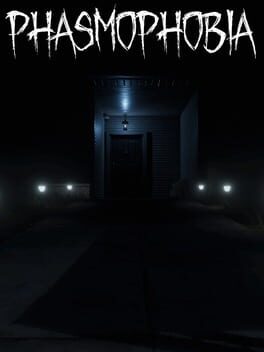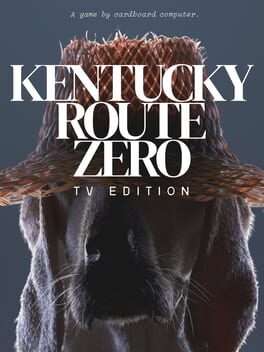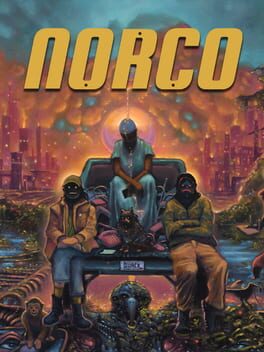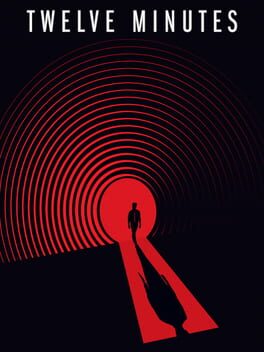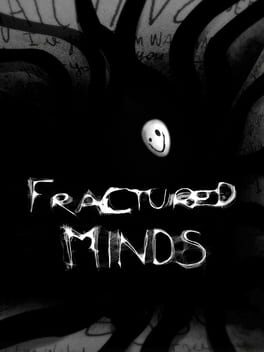MisterArrogant
9 reviews liked by MisterArrogant
Telling Lies
2019
Phasmophobia
2020
Phasmophobia is a decent "sometimes" game. I’ve played a bunch of it with friends and had a good time, but I don’t get much mileage out of what the game offers long term. It has a lot going for it - It does suspense pretty well, opening doors or descending into dark basements with the terrible starter flashlight always made me uneasy. But if you’re playing to win, the game loses a lot of what makes it fun. This game is best played with people who are easily spooked but curious enough to take risks and interact with objects often. Interesting things can happen if you push the ghost’s buttons, but if you play it too safe then the game gets dull quickly. Just about all of what makes this game engaging is riding on how far the players are willing to go even when they don’t necessarily need to. It makes for good entertainment certainly, but as someone who likes ghost stories I find Phasmo’s theming to be seriously lacking. Ghost stories at their heart are about people, often isolated, exploited, and victimized. Even in the campiest of B movies, the idea of the tortured spirit is usually justified to some degree. But Phasmo doesn't care about people, their stories, or even ghosts all that much. Encounters with ghosts are boiled down to their barest bones: what gear to use and where. At the start of each round, we are given the name of the ghost but no information about how they died and why their spirit has stuck around to kill anyone who bothers it. The game's mission is simple: identify the ghost and leave it behind to continue its haunting. I can only presume that better spirit mediums than us and maybe exorcists will be on the way after we're gone. If it wasn't so evident that it was excluded intentionally, I would complain that the most fun part of dealing with a ghost is not a part of Phasmo's gameplay. Instead, my biggest gripe with Phasmo is that it pointedly refuses to acknowledge a story within the rich subject matter it's chosen. Phasmo is not a storytelling game but I would like it better if it was.
Kentucky Route Zero is... difficult. It feels like an experiment on how much patience a person has. There's something here that may truly be great but my GOD is it long, strenuous, and BORING. By "The Barfly" sequence I tapped out. It's just a modern take on The Grapes of Wrath but with a David Lynch influence. You can pack that down into a 2 hour indie and I'd be happy, but no no no this game's gonna make sure you get it by droning on and on and on. I honestly don't know how this game has such great reviews and accolades because as much as I enjoy the aesthetic and wanted to like this game, the week it took for me to beat this game felt like a whole month.
Norco
2022
In terms of gameplay, at the end of the day, it's a very conventional and basic point-and-click adventure game with no deviations from the formula other than how some things are presented. They get the structure of that done perfectly, there was never a moment where I was majorly confused as to what to do next, the interactions and critical path were very clear, and a lot of the optional content was easy to engage with, though I know I must have missed some more obscure things. My favorite thing that they did differently was how they log all of the things you've learned in a "mind map," which makes getting exposition about the (very weird) story very easy.
What this little adventure game gets perfectly right are tone and setting. The art, sounds, and demeanor of all of the characters come together into a vivid picture of the world that the creators aim to immerse you in. It's grimy and it's weird and it's kind of uncomfortable, but it's also fascinating, and the classic "point and click adventure" formula fits right against the setting incredibly well.
What the game does decently is character writing, as it comes to making clear and evocative characters. However, while the dialog is incredibly evocative and does well to make crystal clear characters, what the characters actually SAY is not particularly compelling. The prose and dialog try very hard at a poetic "mystique" contrasted to plain vulgarity, but because there's so much more of a focus on vibe over substance, you don't really get anything out of any individual line no matter how poetic or funny it might be trying to be. Ultimately I lump "character writing" of this type into "tone and setting," because the characters end up serving as strong pillars of the setting without ever providing compelling arcs or drama in their own right.
The story and plot are riveting in terms of dramatic beats to get you invested in how absurd the scenario is that is unfolding. However, there is a lot about the setting and events that undermine the story, with the setting presenting a very mundane and dry presentation of MOST aspects of the world (going into so much detail about the nature of the environment, the politics, what it's like to really live in this situation) and then proceeds to have most characters not truly question just how absurd the premise of the plot actually is. Sure, some people say "man, that's crazy!", but that's not really enough when what's happening is so insane. Just calling something crazy is not the same as actually questioning and analyzing it, and this story is NOT interested in characters actually trying to understand the situations that they're experiencing (whether that means understanding the situations literally, personally, or emotionally).
The best example of this is when the protagonist meets his mom's friend who is the "originator" of the "Superduck," a sentient biological super entity. He literally explains the craziest shit imaginable to the protagonist, and she has NO QUESTIONS about ANY of it. The story just acts like people would accept things that they obviously wouldn't, especially given other things they've questioned or not accepted. If stuff like this was happening all over the world all the time, that would be one thing, but there's a clear insinuation that all of this is new, weird, and scary. I can see that the writer is trying to get across a theme of "the world is always weird and scary, why would these salt-of-the-earth people care about some new weird and scary thing," but I just don't feel like the setting is absurd enough to support the absurd story, and this just causes a lot of tonal dissonances.
My last major issue is that the story itself is too full of vague poeticism. There are a lot of ideas thrown at the screen, but I'm not convinced they really have any kind of interesting interplay. I'm not left thinking about or considering anything meaningful about what was presented after finishing the game, it just kind of boils down to nihilistic absurdism with only a veneer of heart. The implications of what it means for your character to "succeed" at the end are immediately undercut with a sense of imminent doom in their future regardless of the outcome of what happened in the story. I am fairly certain I got the "good ending" because of one or two things I collected earlier in the game, but the story is so obsessed with its own nihilistic tone that there can't actually be a "good ending."
The real issue with "vibe" versus "substance" here is that none of the themes presented really go anywhere or have anything to do with each other, and the themes, story, and character arcs do not interweave in such a way that they elevate or progress one another. You've got a hodgepodge of themes that go nowhere: corporate greed, religious absurdity, modern technological absurdity, family "trauma", etc. The events that occur don't really resolve any of these themes, the themes don't really have anything to do with each other, and at the end of the game, it just feels kind of like you went on a slow-paced Disneyland ride through someone's bizarre hallucinogen-fueled dreams about their fucked up childhood growing up in Louisiana.
Obviously, that was enough to get me to finish the game, but the writing clearly has literary aspirations that it's unfortunately not living up to.
Narrative Design: 4/10
Tone/Setting: 8/10
Plot/Drama: 7/10
Story: 4/10
Themes: 2/10
Character Arcs: 4/10
Dialog: 4/10
What this little adventure game gets perfectly right are tone and setting. The art, sounds, and demeanor of all of the characters come together into a vivid picture of the world that the creators aim to immerse you in. It's grimy and it's weird and it's kind of uncomfortable, but it's also fascinating, and the classic "point and click adventure" formula fits right against the setting incredibly well.
What the game does decently is character writing, as it comes to making clear and evocative characters. However, while the dialog is incredibly evocative and does well to make crystal clear characters, what the characters actually SAY is not particularly compelling. The prose and dialog try very hard at a poetic "mystique" contrasted to plain vulgarity, but because there's so much more of a focus on vibe over substance, you don't really get anything out of any individual line no matter how poetic or funny it might be trying to be. Ultimately I lump "character writing" of this type into "tone and setting," because the characters end up serving as strong pillars of the setting without ever providing compelling arcs or drama in their own right.
The story and plot are riveting in terms of dramatic beats to get you invested in how absurd the scenario is that is unfolding. However, there is a lot about the setting and events that undermine the story, with the setting presenting a very mundane and dry presentation of MOST aspects of the world (going into so much detail about the nature of the environment, the politics, what it's like to really live in this situation) and then proceeds to have most characters not truly question just how absurd the premise of the plot actually is. Sure, some people say "man, that's crazy!", but that's not really enough when what's happening is so insane. Just calling something crazy is not the same as actually questioning and analyzing it, and this story is NOT interested in characters actually trying to understand the situations that they're experiencing (whether that means understanding the situations literally, personally, or emotionally).
The best example of this is when the protagonist meets his mom's friend who is the "originator" of the "Superduck," a sentient biological super entity. He literally explains the craziest shit imaginable to the protagonist, and she has NO QUESTIONS about ANY of it. The story just acts like people would accept things that they obviously wouldn't, especially given other things they've questioned or not accepted. If stuff like this was happening all over the world all the time, that would be one thing, but there's a clear insinuation that all of this is new, weird, and scary. I can see that the writer is trying to get across a theme of "the world is always weird and scary, why would these salt-of-the-earth people care about some new weird and scary thing," but I just don't feel like the setting is absurd enough to support the absurd story, and this just causes a lot of tonal dissonances.
My last major issue is that the story itself is too full of vague poeticism. There are a lot of ideas thrown at the screen, but I'm not convinced they really have any kind of interesting interplay. I'm not left thinking about or considering anything meaningful about what was presented after finishing the game, it just kind of boils down to nihilistic absurdism with only a veneer of heart. The implications of what it means for your character to "succeed" at the end are immediately undercut with a sense of imminent doom in their future regardless of the outcome of what happened in the story. I am fairly certain I got the "good ending" because of one or two things I collected earlier in the game, but the story is so obsessed with its own nihilistic tone that there can't actually be a "good ending."
The real issue with "vibe" versus "substance" here is that none of the themes presented really go anywhere or have anything to do with each other, and the themes, story, and character arcs do not interweave in such a way that they elevate or progress one another. You've got a hodgepodge of themes that go nowhere: corporate greed, religious absurdity, modern technological absurdity, family "trauma", etc. The events that occur don't really resolve any of these themes, the themes don't really have anything to do with each other, and at the end of the game, it just feels kind of like you went on a slow-paced Disneyland ride through someone's bizarre hallucinogen-fueled dreams about their fucked up childhood growing up in Louisiana.
Obviously, that was enough to get me to finish the game, but the writing clearly has literary aspirations that it's unfortunately not living up to.
Narrative Design: 4/10
Tone/Setting: 8/10
Plot/Drama: 7/10
Story: 4/10
Themes: 2/10
Character Arcs: 4/10
Dialog: 4/10
Twelve Minutes
2021
some spoilers below, which im not tagging because i don't care about them and neither should you, but if having the game spoiled will turn you away from playing it, then i have done you a favor, and you're very welcome.
here's the positive stuff: willem dafoe does a pretty good job here, and the other actors are overall decent. their talents are utterly wasted here, and there are many line reads that land awkwardly, but overall it's fine. that's the absolute best thing i have to say about this mess.
playing this game is a slog. there are a lot of frustrating moments where you know what you need to do, you've uncovered the information, but it turns out you needed to click on an item three more times for your character to piece it together properly (literally), and then go use the info elsewhere.
i could forgive some of that frustration if the story was interesting, but aside from going "ah, that's fucked up" when you figure out the main twist, the rest of it falls flat, and it only goes downhill afterwards. and no, i wouldn't call it ambitious. it's cliche-ridden, masturbatory, and derivative.
none of it is given any sense of metaphorical gravity, and the story told is pretty heinous, not because the unnecessary trauma porn simply exists, but because the trauma porn serves no purpose that justifies its presence, nor is the quality of writing enough to redeem the experience in general.
drugging your pregnant sister/wife repeatedly is a critical path requirement. watching her get killed while you hide in a closet is a critical path requirement. torturing a man is a critical path requirement. gruesomely murdering your pregnant sister/wife with a kitchen knife is optional, but available if you feel like doing that for no reason (and you might be likely to try it if you don't yield to a walkthrough and go into "use everything on everything else" mode).
all of this could be used effectively by a more skilled writer. i'm not the kind of person to say story beats are inherently off-limits in art. but if you're gonna come packing, you better be able to justify going there. this clearly isn't a shock value trolling game, they're trying to make film major/psych minor bullshit, but you don't get a pass just because you threw a Kubrick reference on the carpet. you know why we still watch Kubrick films even knowing he was a huge piece of shit? because they're good movies. you gotta earn it. oh, the fucking paintings change over time? ooooh, does that get used anywhere? no? fuck off.
the gameplay and design are bad, the story and writing are bad, this is just a failure on all fronts.
i bought it on steam, but i know its also on gamepass, if you have that. that said, i'd skip this mess entirely, even if you can play it for free. if you want compelling and profound art from a small team in which you know a man is coming to kill you, go play adios instead. if you want a time loop game where the time loop is a worthwhile mechanic, go play outer wilds or majora's mask instead. all three of those games are masterpieces, especially compared to this garbage.
here's the positive stuff: willem dafoe does a pretty good job here, and the other actors are overall decent. their talents are utterly wasted here, and there are many line reads that land awkwardly, but overall it's fine. that's the absolute best thing i have to say about this mess.
playing this game is a slog. there are a lot of frustrating moments where you know what you need to do, you've uncovered the information, but it turns out you needed to click on an item three more times for your character to piece it together properly (literally), and then go use the info elsewhere.
i could forgive some of that frustration if the story was interesting, but aside from going "ah, that's fucked up" when you figure out the main twist, the rest of it falls flat, and it only goes downhill afterwards. and no, i wouldn't call it ambitious. it's cliche-ridden, masturbatory, and derivative.
none of it is given any sense of metaphorical gravity, and the story told is pretty heinous, not because the unnecessary trauma porn simply exists, but because the trauma porn serves no purpose that justifies its presence, nor is the quality of writing enough to redeem the experience in general.
drugging your pregnant sister/wife repeatedly is a critical path requirement. watching her get killed while you hide in a closet is a critical path requirement. torturing a man is a critical path requirement. gruesomely murdering your pregnant sister/wife with a kitchen knife is optional, but available if you feel like doing that for no reason (and you might be likely to try it if you don't yield to a walkthrough and go into "use everything on everything else" mode).
all of this could be used effectively by a more skilled writer. i'm not the kind of person to say story beats are inherently off-limits in art. but if you're gonna come packing, you better be able to justify going there. this clearly isn't a shock value trolling game, they're trying to make film major/psych minor bullshit, but you don't get a pass just because you threw a Kubrick reference on the carpet. you know why we still watch Kubrick films even knowing he was a huge piece of shit? because they're good movies. you gotta earn it. oh, the fucking paintings change over time? ooooh, does that get used anywhere? no? fuck off.
the gameplay and design are bad, the story and writing are bad, this is just a failure on all fronts.
i bought it on steam, but i know its also on gamepass, if you have that. that said, i'd skip this mess entirely, even if you can play it for free. if you want compelling and profound art from a small team in which you know a man is coming to kill you, go play adios instead. if you want a time loop game where the time loop is a worthwhile mechanic, go play outer wilds or majora's mask instead. all three of those games are masterpieces, especially compared to this garbage.
Spec Ops: The Line
2012
Time really has destroyed the thematic material of Spec Ops: The Line. The biggest issue with the game's defining moment (the white phosphorus scene) is a simple one: you have literally no choice but to make this decision. There is nothing around the usage of white phosphorus - you either commit this terrible war crime, or you don't play the game. And yet, this railroading decision undermines the weight of the game's overall message about accountability. How am I supposed to take accountability for making a terrible decision I actually had no choice but to make? Sure, I could have just "not played the game", but how is that a viable alternative when I literally paid money to actually play this game in the first place? This reminds me strongly of The Last Of Us 2, which tried to be a critical thinkpiece on violence and brutality and yet the only way to progress the story was by slaughtering dozens of random people. But at least TLOU2 didn't necessarily call out the player themselves for indulging in virtual violence. Spec Ops: The Line does - it is blatantly obvious that the criticisms thrown at Captain Walker are thinly-disguised meta-criticisms being levied at the player, criticisms that feel unearned given that the player has no choice but to partake in war crimes. Why does the game hate me for doing what it literally wants me to do? Why does it think I could have avoided this at any time when the only alternative is "don't play this game you paid money to play"? It's so genuinely confusing, like the game's biting the hand that fed it in the first place and chastising you for just playing a linear narrative.
Spec Ops: The Line probably could have benefitted from having moral choices if it was going to be a metanarrative about player choice and accountability, but if it absolutely had to be a linear game that way you could directly experience the more psychological setpieces the game has in store for you, then I think the game should have dived further into its anti-war messaging & commentary than its 'subversive' shattering of the fourth wall. Because I think the choice to loosely adapt Heart of Darkness into a modern military setting actually has a lot of merit to it. The story that the game sets up for its main antagonist, Konrad, is a surprisingly thorough and fleshed-out examination of corrupt military practices, and the late-game twist that Konrad actually committed suicide out of guilt for what he'd done and out of horror in regards to the brutality of the military and the CIA's handling of Dubai and its people? That's some great stuff! A lot more could have been done with that. Konrad's suicide is a poignant idea, because you spend the entire game looking for this guy, and discovering he's been dead for a while now renders all of the war crimes you'd done up until that point totally meaningless, and that could have been used to illustrate the hollow, mindless brutality of war crimes and interventionism in a way that directly challenges not only the military-shooter genre, but military practices and politics as a whole.
Perhaps Walker and his squad should have instead been painted as a bunch of gung-ho psychopaths that indiscriminately slaughter in the name of the American Dream and only fall further into an abyss of violence & death as the game goes on. Or, at the very least, make Walker's squad a bunch of psychopaths and have Walker slowly realize they're fucking crazy, that way you could still have an audience surrogate and still have Walker undergo his psychological character arc. You know, like Haze. Except Haze's theming is consistent and latches onto some interesting ideas about war profiteering, propaganda, and experimentation whereas Spec Ops doesn't even latch onto the most interesting thing about its narrative, instead honing in on a more visually-interesting but narratively dead-eyed 'psychological' story, much to its detriment.
There are some strong plot beats, but Spec Ops ultimately has nothing to say because instead of looking inward, it lashes outward and thrusts its anger onto a wholly undeserving player, calling them a monster when the player was just trying to finish the damn game. If this had been a more salient criticism of military shooters, using its own linearity as an inside-out examination of how linear shooters use war crimes to violently progress their plots, then Spec Ops' railroad-y narrative could have actually worked. There's a lot of ways this game could have clicked and said something profound, and pretty much all of it has to do with the anti-war stuff this game initially seems interested in covering. But somewhere along the line, Spec Ops decides it's much more interested in treating the player like the devil than it is in criticizing the actual devil in the room: military shooters themselves, a subgenre of video games that are nothing more than Pentagon propaganda made to indoctrinate teens into wanting to join the US military and commit war crimes for the Stars and Stripes. The fact that it's attached to a bland third-person shooter with underdeveloped sand mechanics is just the cherry on top, really.
Spec Ops: The Line probably could have benefitted from having moral choices if it was going to be a metanarrative about player choice and accountability, but if it absolutely had to be a linear game that way you could directly experience the more psychological setpieces the game has in store for you, then I think the game should have dived further into its anti-war messaging & commentary than its 'subversive' shattering of the fourth wall. Because I think the choice to loosely adapt Heart of Darkness into a modern military setting actually has a lot of merit to it. The story that the game sets up for its main antagonist, Konrad, is a surprisingly thorough and fleshed-out examination of corrupt military practices, and the late-game twist that Konrad actually committed suicide out of guilt for what he'd done and out of horror in regards to the brutality of the military and the CIA's handling of Dubai and its people? That's some great stuff! A lot more could have been done with that. Konrad's suicide is a poignant idea, because you spend the entire game looking for this guy, and discovering he's been dead for a while now renders all of the war crimes you'd done up until that point totally meaningless, and that could have been used to illustrate the hollow, mindless brutality of war crimes and interventionism in a way that directly challenges not only the military-shooter genre, but military practices and politics as a whole.
Perhaps Walker and his squad should have instead been painted as a bunch of gung-ho psychopaths that indiscriminately slaughter in the name of the American Dream and only fall further into an abyss of violence & death as the game goes on. Or, at the very least, make Walker's squad a bunch of psychopaths and have Walker slowly realize they're fucking crazy, that way you could still have an audience surrogate and still have Walker undergo his psychological character arc. You know, like Haze. Except Haze's theming is consistent and latches onto some interesting ideas about war profiteering, propaganda, and experimentation whereas Spec Ops doesn't even latch onto the most interesting thing about its narrative, instead honing in on a more visually-interesting but narratively dead-eyed 'psychological' story, much to its detriment.
There are some strong plot beats, but Spec Ops ultimately has nothing to say because instead of looking inward, it lashes outward and thrusts its anger onto a wholly undeserving player, calling them a monster when the player was just trying to finish the damn game. If this had been a more salient criticism of military shooters, using its own linearity as an inside-out examination of how linear shooters use war crimes to violently progress their plots, then Spec Ops' railroad-y narrative could have actually worked. There's a lot of ways this game could have clicked and said something profound, and pretty much all of it has to do with the anti-war stuff this game initially seems interested in covering. But somewhere along the line, Spec Ops decides it's much more interested in treating the player like the devil than it is in criticizing the actual devil in the room: military shooters themselves, a subgenre of video games that are nothing more than Pentagon propaganda made to indoctrinate teens into wanting to join the US military and commit war crimes for the Stars and Stripes. The fact that it's attached to a bland third-person shooter with underdeveloped sand mechanics is just the cherry on top, really.
Fractured Minds
2019
Fractured Minds
2019
I'll say this for Fractured Minds- I can think of no better way to farm for Xbox achievements. 1000/1000 completed in about 20 minutes, and the game itself isn't terrible. 6 quick levels completely designed and programmed by Emily Mitchell, a young woman dealing with mental illness, trying to demonstrate how that feels. It pulls off a few neat tricks, my personal favorite coming after maybe 1 minute of play time. But there's just not enough here to make much of an impression unfortunately. I'm curious to see what Emily could pull off with some more resources at her disposal, as this almost feels like a first draft of what could be a much better game.

